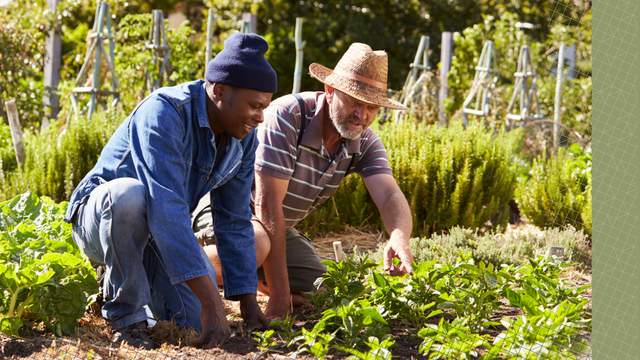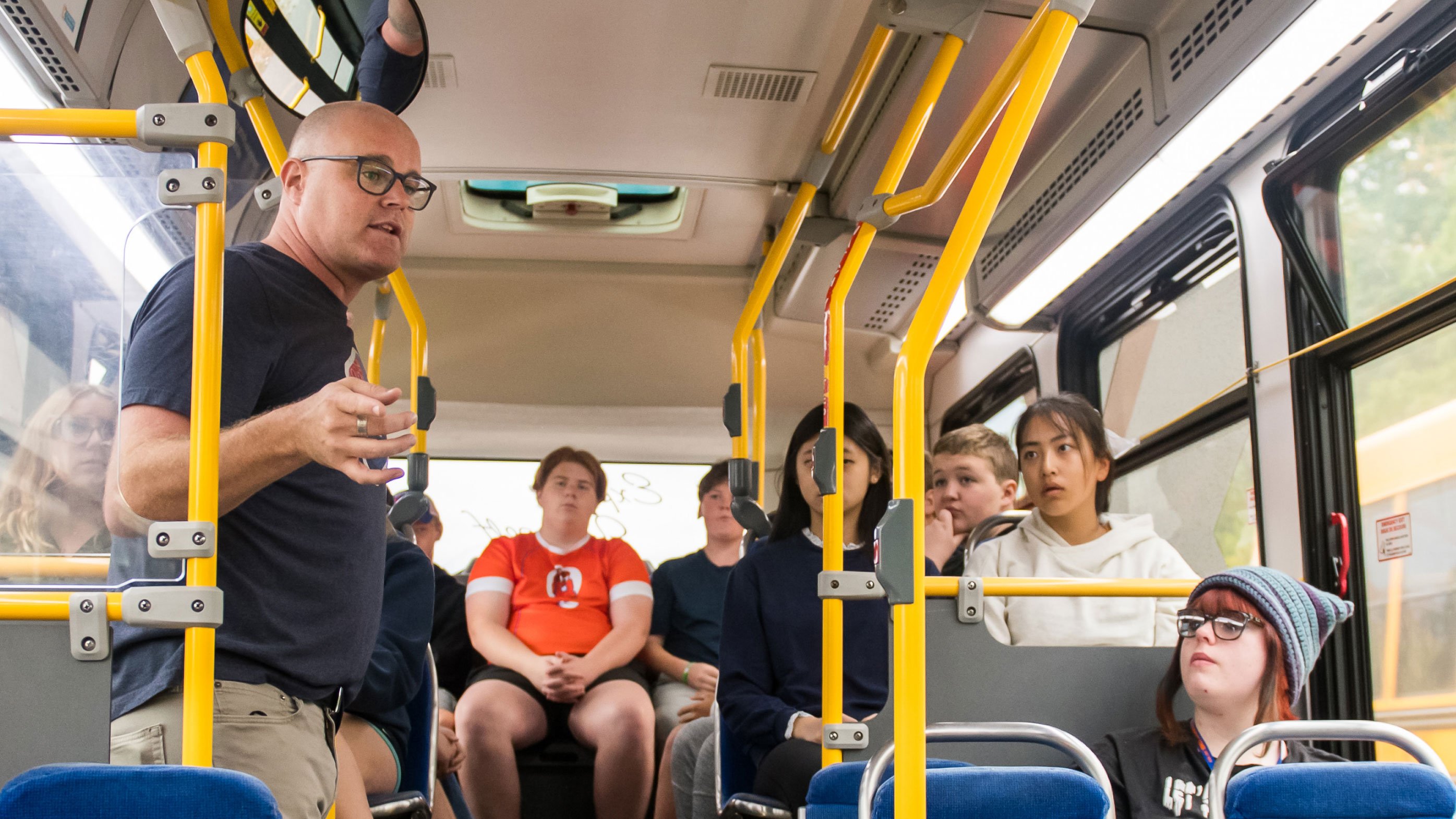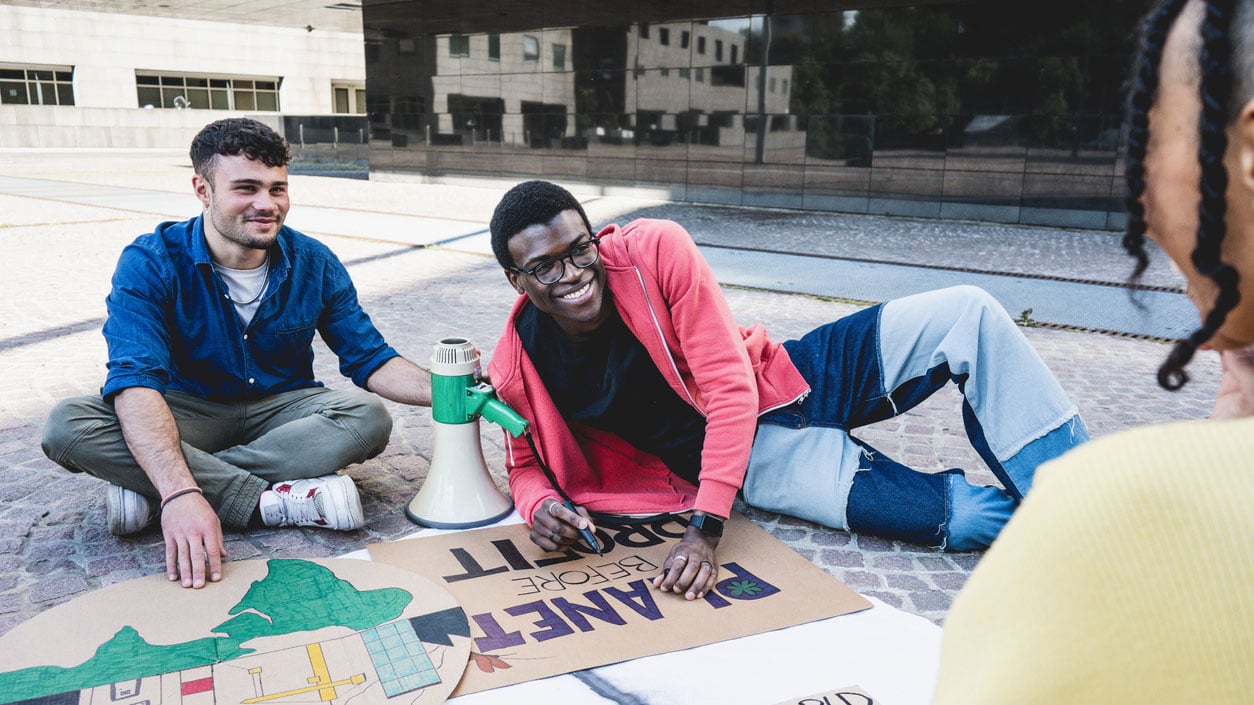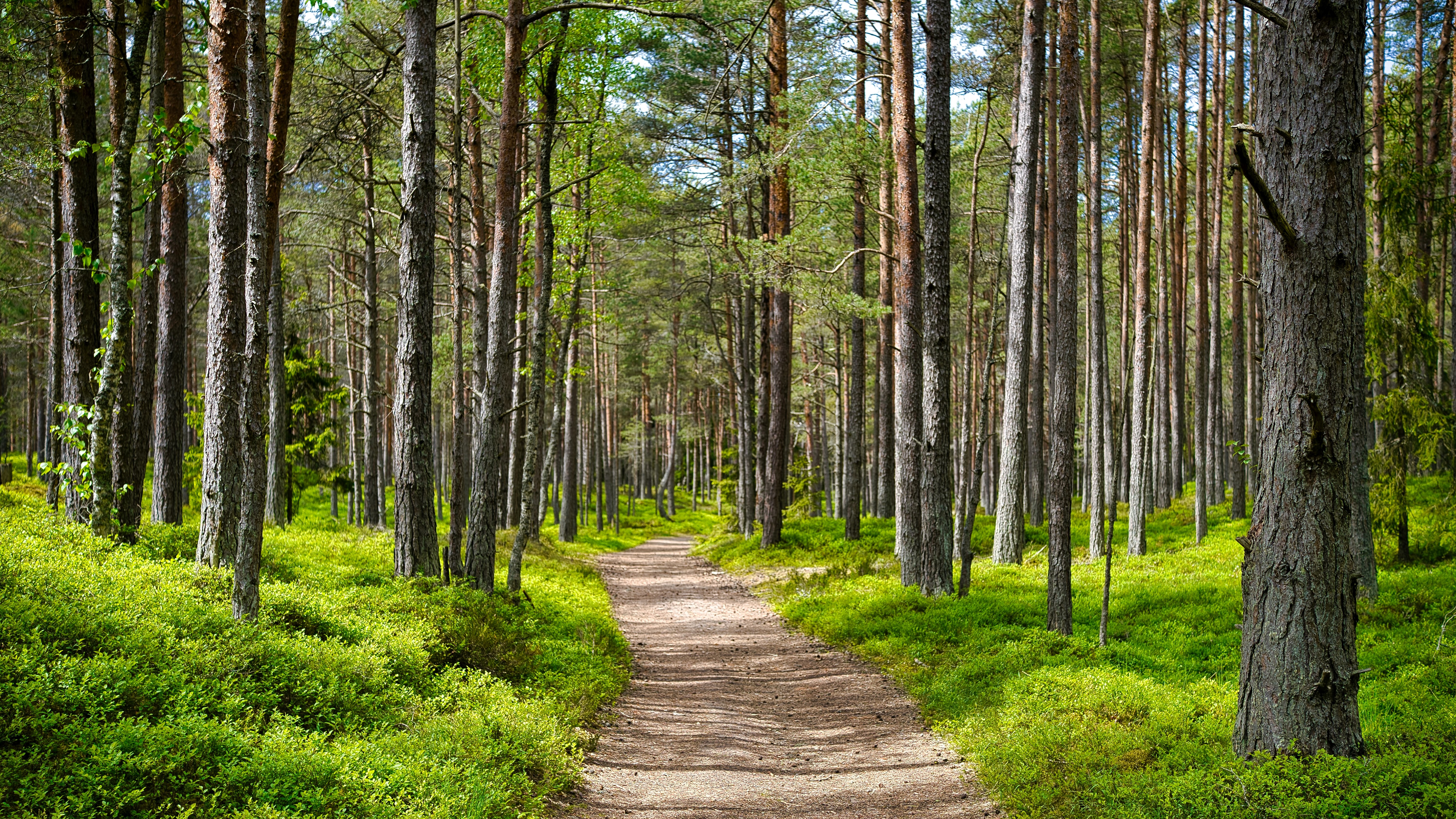En rétrospective, les 19 communautés pionnières qui ont rejoint les Communautés en faveur d’une transition socioécologique en 2022 ont déclenché un mouvement, démontrant ce qu’il est possible d’accomplir lorsque les partenariats climatiques locaux établissent la confiance entre divers acteurs et actrices et travaillent vers des objectifs communs.
Deux ans plus tard, nous sommes beaucoup plus près de voir l’action climatique intersectorielle dirigée par la communauté devenir la norme, avec un réseau de 70+ communautés actuelles et anciennes engagées dans des initiatives collaboratives. Cette année, nous sommes impatient.e.s d’approfondir notre travail avec nos membres et d’apprendre à leurs côtés alors qu’ils/elles font progresser les transitions socioécologiques équitables et remplissent les visées des ODD.
– Directrice des Communautés en faveur d’une transition socioécologique, Laura Schnurr
Bâtir sur des bases solides
En 2022 et 2023, près de 50 communautés provenant de huit provinces ont participé aux Cohortes de L’Institut portant sur les transitions climatiques.
Au cours de leur première année d’engagement avec le réseau des Communautés en faveur d’une transition socioécologique (CTS), les collectivités ont développé une vision commune en partenariat avec les détenteur.rice.s de droits locaux et les parties prenantes. Elles ont appliqué des solutions à résolutions multiples d’impact collectif à l’action climatique, pour relever les défis locaux de manière holistique et collaborative, et ont de ce fait créé des prototypes et des solutions climatiques prometteuses.
Le mouvement de la transition socioécologique mené par la Communauté est vaste et ses impacts sont considérables. La Cohorte de cette année ne sera pas différente et trouvera sa place en excellente compagnie, parmi les Cohortes antérieures. L’équipe de l’Institut est ravie de continuer à travailler aux côtés de nombreux ancien.ne.s des Cohortes qui sont revenu.e.s en tant que membres du réseau tout en élargissant le réseau une fois de plus cette année.
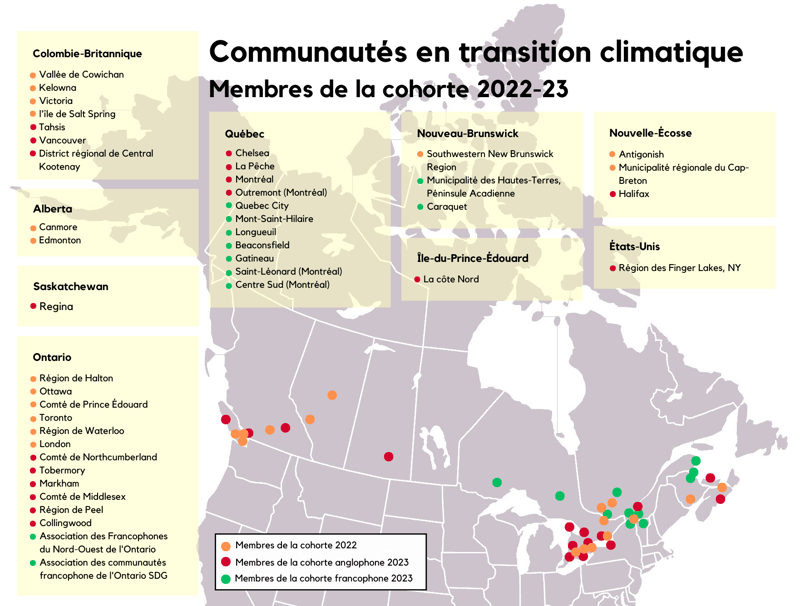
Accueillez avec nous la nouvelle Cohorte de cette année !
En 2024, nous accueillons 24 nouvelles communautés grâce à notre troisième Cohorte anglophone et notre deuxième Cohorte francophone.
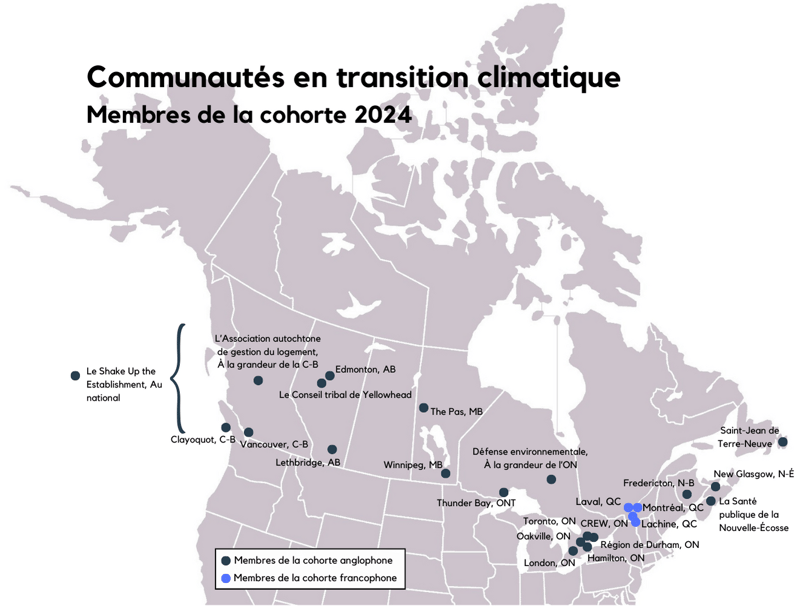
Voici les 20 membres de la nouvelle Cohorte anglophone en faveur d’une transition socioécologique :
-
Terre-Neuve-et-Labrador : Municipalités de Terre-Neuve-et-Labrador
-
New Glasgow, Nouvelle-Écosse : New Glasgow
-
Nouvelle-Écosse : La Santé publique de la Nouvelle-Écosse
-
Frédéricton, Nouveau-Brunswick : Le Fredericton Community Climate Hub, Réalité climatique Canada
-
London, Ontario : Le London Health Sciences Centre, le London/Middlesex Public Health Unit, la Western University, le London Cycle Network, Creating Me et Run Like Clockwork.
-
Hamilton, Ontario : Le Vital Futures et Action13.
-
Région de Durham, Ontario : Le Brilliant Energy Institute, la ville de Pickering, Climate Justice Durham, la Municipalité de Clarington, la Ontario Tech University, la région de Durham, la ville d’Ajax, Les Cantons Brock et le village de Whitby.
-
Toronto, Ontario : Le Community Resilience to Extreme Weather (CREW)
-
Thunder Bay, Ontario : La Ville de Thunder Bay, le Comité consultatif sur les changements climatiques (EarthCare), le Rotary Club de Thunder Bay – Port Arthur, Environnement Nord et le Northwest Climate Collaborative.
-
Oakville, Ontario : le Oakville Community Foundation
-
À la grandeur de l’Ontario : le Environmental Defence
-
Winnipeg, Manitoba : Le Manitoba Eco-Network, West Broadway Community Organization, le West End Resource Centre, la Spence Neighbourhood Association et le Green Action Centre.
-
The Pas, Manitoba Nord : La University College of the North, la Opaskwayak Cree Nation, le Pas Community Development Corporation et le village de The Pas.
-
Lethbridge, Alberta : L’Environnement Lethbridge, la Ville de Lethbridge et le Centre de la nature Helen Schuler.
-
Edmonton, Alberta : L’Africa Centre.
-
La Première Nation Alexander, la Nation sioux Alexis Nakota, la Première Nation O’Chiese et la Première Nation Sunchild, Alberta : Le Conseil tribal de Yellowhead
-
Région de la biosphère de la baie Clayoquot, Colombie-Britannique : La Fiducie de la biosphère Clayoquot
-
Vancouver, Colombie-Britannique : Le Women Transforming Cities.
-
À la grandeur de la Colombie-Britannique : L’Association autochtone de gestion du logement
-
Au national : Le Shake Up the Establishment
Les quatre nouveaux membres de la Cohorte ClimatIC francophone :
-
Lachine, Québec : Le GRAME
-
Laval, Québec : La Ville de Laval
-
Montréal, Québec : ENvironnement JEUnesse
-
Montréal, Québec : Collectif villes durables et résilientes
Les objectifs audacieux de cette année
Lorsqu’on leur a demandé quels objectifs locaux elles souhaitaient faire progresser au cours de l’année, les communautés ont partagé des espoirs et des rêves ambitieux, dont:
-
Soutenir la littératie environnementale de la communauté, en mettant l’accent sur la diversification des récits sur le climat et en parlant de l’action climatique de manière à inclure le point de vue des résident.e.s ayant une expérience vécu des défis en question.
-
Créer des outils pour soutenir la résilience et l’adaptation des communautés face aux impacts climatiques grâce à des solutions fondées sur la nature, la coordination des interventions en cas de catastrophe et d’autres efforts dirigés par les résident.e.s.
-
Établir des liens entre les plans et les activités climatiques jusqu’alors cloisonnés, dans le cadre de programmes communs afin de réduire au minimum les chevauchements, de mettre en commun les ressources et d’atteindre des progrès mesurables à l’échelle communautaire par rapport aux cibles.
-
Mettre en œuvre des approches d’engagement qui rencontrent les gens là où ils en sont et encourager les dirigeant.e.s des communautés méritantes d’équité à participer et à diriger le travail d’action climatique (en mettant l’accent sur les jeunes, les communautés africaines et caribéennes, d’autres groupes racisés, les zones rurales et les personnes de diverses identités de genre).
-
Identifier et activer les leviers politiques prometteurs en faveur de l’action climatique (p. ex., plaidoyer mené par les jeunes et la santé publique) et développer des outils de connaissances pour renforcer les capacités et approfondir l’impact de ce travail.
-
Développer un sentiment partagé d’appropriation des plans climatiques existants en créant des cadres pour l’engagement des résident.e.s qui permettent le leadership et l’action menée depuis les quartiers.
-
Adopter des modèles de gouvernance inclusifs et collaboratifs qui permettent de faire entendre plus de voix dans le travail climatique local et de créer des responsabilités partagées pour la mise en œuvre du plan.
Ce qui nous attend cette année
Les 23 nouveaux membres de la Cohorte en faveur d’une transition socioécologique passeront par un programme de 10 mois axé sur le renforcement des capacités et le partage des connaissances qui jetterons des bases solides pour la collaboration et l’action locale. Chaque membre aura accès à des expert.e.s, de l’encadrement et des communautés de pratique privées, autour des thèmes de l’impact collectif et de la justice climatique afin de soutenir les objectifs locaux.
Nous sommes également ravis d’offrir aux membres l’accès à deux fonds uniques qui ont un impact profond en regard de l’équité. Le Fonds d’innovation communautaire (FIC) aide ses membres à lancer et à déployer des projets communautaires ambitieux axés sur l’atténuation et/ou l’adaptation aux changements climatiques. Le Fonds de contributions communautaires (FCC) favorise l’ingéniosité des membres de la collectivité méritant l’équité en finançant et en appuyant leur leadership dans les collaborations et les projets locaux.
Voici un aperçu du programme pour 2024 :
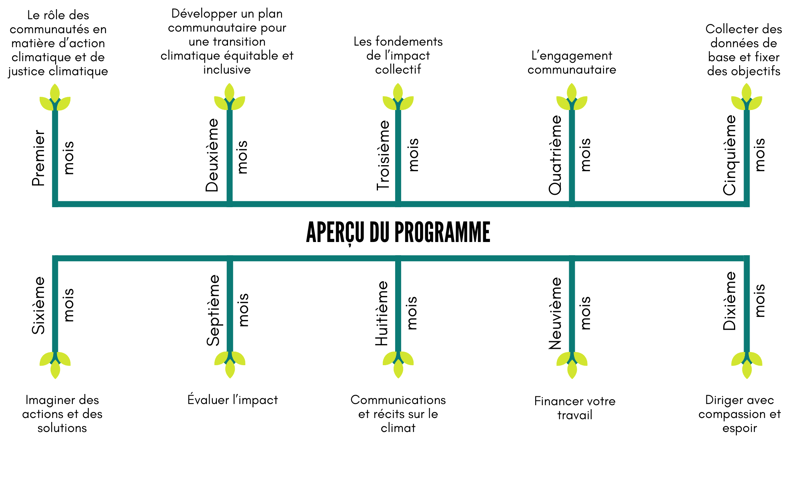
S’engager envers une transition socioécologique juste et équitable
Chaque organisation entamant ce parcours s’engage à servir sa communauté et à assurer un avenir plus sain et plus équitable par l’entremise du travail collaboratif qui génère des changements pérennes.
Vous aimeriez vous joindre à la Cohorte 2025 ou proposer une communauté ? Communiquez avec la directrice des Communautés en faveur d’une transition socioécologique (CTS) : laura@tamarackcommunity.ca.
Les Cohortes de l’Institut portant sur les transitions socioécologiques communautaires sont rendues possibles grâce au généreux soutien du Programme de financement des objectifs de développement durable du gouvernement du Canada et de la Fondation Definity Assurance.




